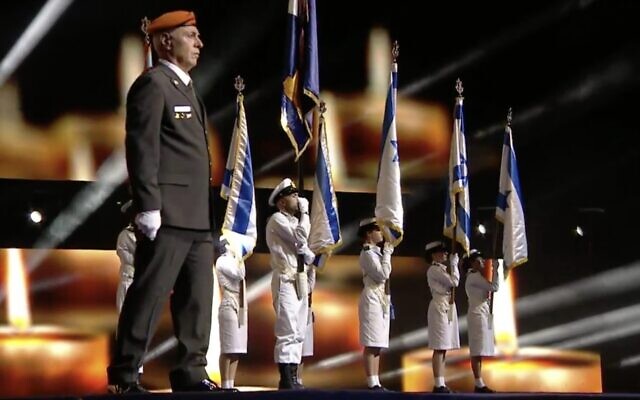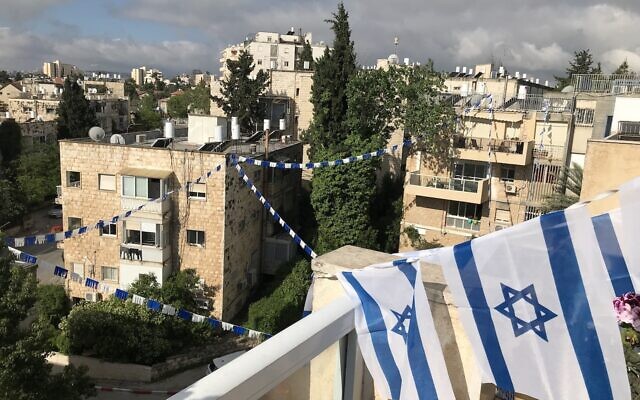Israelis began celebrating 72 years of statehood this year by greeting medical personnel. A torch-lighting ceremony began without an audience in honor of Israel’s doctors, nurses, care-givers, hospital staff and volunteers who have been fighting the Wuhan virus, with many fireworks displays and hospital fly-overs by the Israeli Air Force canceled.
Most Israelis marked Independence Day at home.
Prime minister Binyamin Netanyahu addressed the nation in a video saying “We’ve never celebrated this kind of Independence Day. We are in a physical sense far from one another, but we’ve never been closer.” Praising hospital workers Netanyahu added “The day will come when embraces return… But we still can’t do this because the pandemic is still here.”
Knesset speaker Benny Gantz lit a torch on the eve of Independence Day and spoke of national unity, saying Israelis must prepare for even more difficult days, and called for creating “a new moral face of the country.”
As Israel’s 72nd birthday is being celebrated, it’s worth remembering how many Litvaks authored, fought for and fortified Israeli statehood. Lithuania was the location of a strong Zionist movement in the early 20th century and many Litvaks made aliyah to the land of Israel even before the declaration of statehood. In Soviet Lithuania after the Holocaust Jews weren’t permitted to leave, although many made the trip via Poland. Those left behind dreamed and waited for permission to repatriate to the Promised Land. Around 1970 Lithuanian Jews began leaving for Israel in larger numbers, many of them highly educated people of different professions whom Israel even now calls its elite.
Israel’s towns and cities called off fireworks displays this year. Most mayors dispensed with the annual tradition to save money and avoid crowds. Larger cities which canceled fireworks this year included Tel Aviv, Ashkelon, Bat Yam, Rishon Lezion, Ramat Gan and others. Rishon Lezion mayor Rax Kinstlich reallocated funds for the fireworks to acquiring computers needed by Israeli families.
Israel celebrates statehood with a population of about 9.2 million people. Israel’s national Central Bureau of Statistics has announced a population increase over last year of 171,000 people. The population demographics in Israel currently stand at 74% Jews and 21% Arabs. It’s estimated that when Israel celebrates its centennial in 2048 the population will have reached 15.2 millions of people.
Last year there were 180,000 babies born, 44,000 deaths and 32,000 people returned from the Diaspora. The Central Statistics Bureau calls Israel “a country of young people.” About 950,000 children aged 4 and under live in Israel currently. About 28% of people are aged from zero to 14 and 12% are 65 and over.
Of the Jewish population, 78% were naturally born in Israel. Since official statehood in 1948 about 3.3 million people arrived in Israel and 44% of these had left the country by 1990. Back in 1948 just 6% of the world’s estimated 11.5 million Jews lived in Israel. Today 45% of the world’s 14.7 millions Jews call the Jewish homeland home. Among the five cities with the highest Jewish populations in 2020, Jerusalem had 938,047, Tel Aviv 461,352 and Haifa 285,542 Jewish residents.





